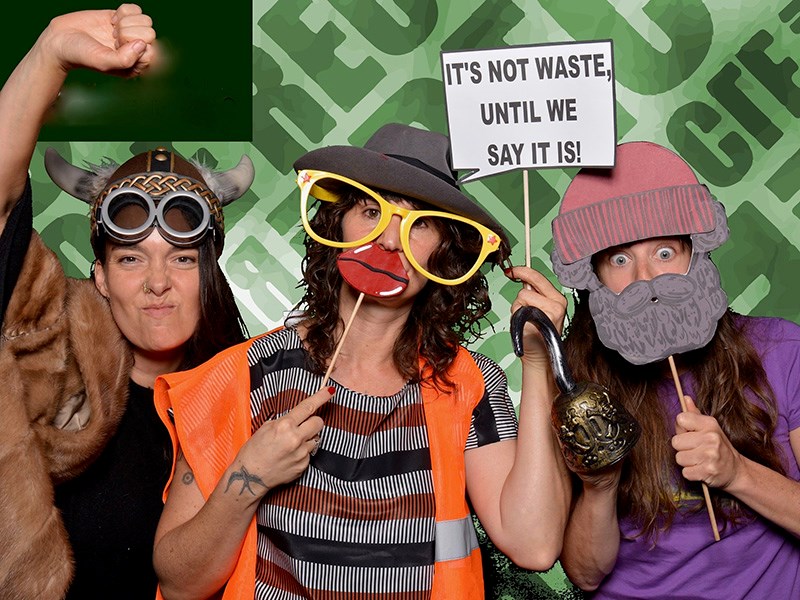Readers may have seen the news article stating that “the long-term goal for qathet Regional District is zero waste requiring disposal” recently in the Peak [“Regional district receives grant for solid-waste centre,” November 15].
This is also the primary goal of the Let’s Talk Trash team (LTT), the presenters at the second monthly lecture in the series organized and sponsored by Climate Action Powell River Society (CAPR).
LTT team’s operation is a supported initiative of the regional district’s waste-reduction education program. Their presentation is entitled “Mapping the Road Ahead to Zero Waste: Upcycling and Climate Action.”
The relationship between waste and greenhouse gas (GHG) emissions is direct and clearly understandable. It is primarily about the use of less energy and preventing increased emissions through a number of pathways.
For example, manufacturing new aluminum cans from old ones uses 1/12 the energy required to make new cans from raw materials. For glass, one ton of CO2 emissions is saved per 315 kilograms of material recycled.
Recycling paper products and packaging greatly reduces the methane emissions from our landfill dumps. It is also about using far less fossil-fuel energy in the manufacture and distribution of paper products and packaging.
If paper can be used over and over again, it will not be rotting and producing methane gas, which is approximately 20 times stronger by volume than CO2 as a greenhouse gas.
An interesting local example is the collection and supply of household compostable material and organic yard waste to Salish Soils, a company near Sechelt that uses these materials in the manufacture of soil. This prevents it from simply decomposing in a landfill and producing methane.
It is interesting to note that many communities have begun to collect the methane from previous deposits of organic material and feed it into the natural gas grid. There is, of course, some profit to be made in doing so.
These days, the many reports on plastic in the environment, and indeed in the tissue of living things, including us, highlights the need for tight controls on how it is used, how it is moved and where it ends up. As well, the transportation of all types of packaging needs to be minimized as fossil-fuel consumption is a factor in all phases.
The Let’s Trash Talk team will enlighten us all on how to contribute to the zero-waste effort. They will talk about the why of it all, and ways to eliminate waste by wise resource management.
A multimedia presentation will show and explain examples of waste being converted into useful products, a process known as “upcycling.” Educational resource materials will be available at this opportunity to become well informed on current best practices.
The presentation will involve about one hour of lecture, demonstration and PowerPoint, followed by a question period and group discussion. This will take place from 2 to 4 pm on Saturday, December 8, in the Elm Room at Powell River Recreation Complex. CAPR enthusiastically invites all comers.
Climate Action Powell River Society is a non-profit society committed to helping the residents and businesses of Powell River to reduce their greenhouse gas.



